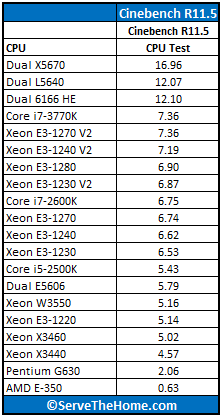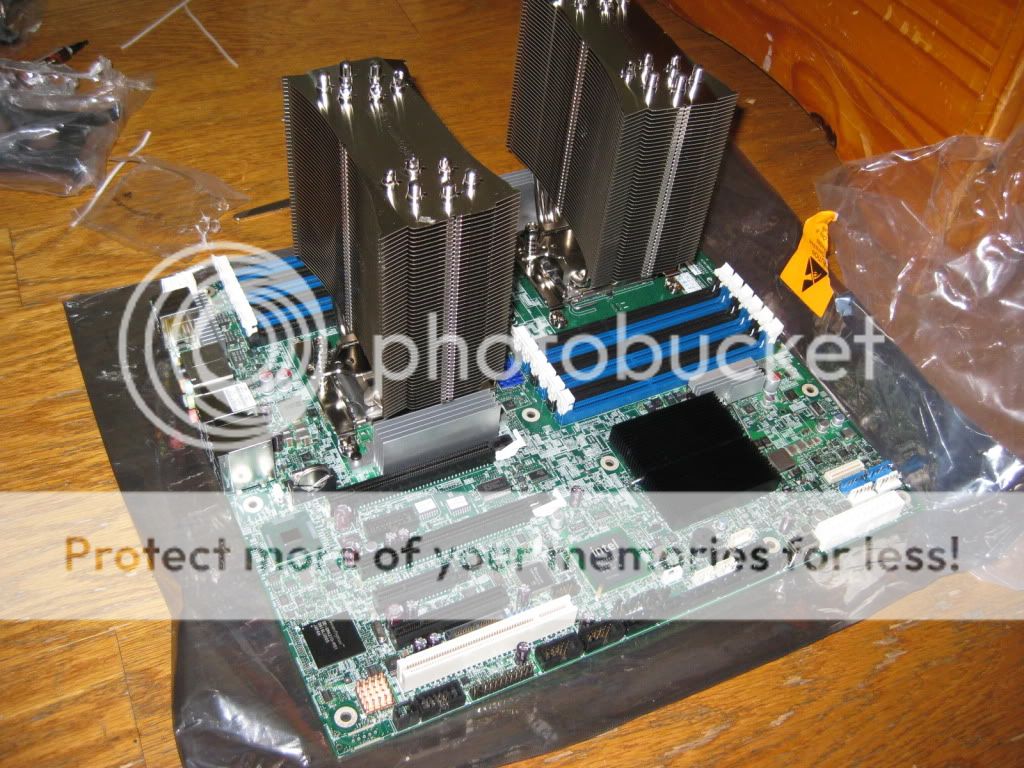- May 28, 2009
- 555
- 2
- 71
Browsing search a bit: the almost Pavlov'ian response to this question is immediately barked as "Xeon for server, Core i7 for gaming". There is an obvious problem with this, because paying for Intel's on-die HD 4000 graphics doesn't make a whole lot of sense for a gaming rig. But review sites don't really do Xeon, you can't find them in the AT Bench tool for instance.
Most motherboards support the socket 1155 Xeon just as well as other Ivy Bridge CPUs(?) and as it turns out you have to not just consult the MB RAM compatibility list, but also check the CPU RAM compatibility list to find suitable memory. With Xeon you have the option to use error correcting memory as well, but you don't have to.
Comparing the i7-3770K to the E3-1270V2, they appear to be exactly the same chip and score exactly alike in benchmarks, the Xeon comes sans integrated Graphics offering a whole bunch of virtualization features instead. Though they may be just as useless to me and you as integrated graphics.
Intel's own comparison: http://ark.intel.com/compare/65727,65523
The "V2" at the end indicates that it's build using 22 nm process. While Xeons with a 5 at the end (E3-1275 V2) also offer integrated graphics.
 Here a few more benchmarks I've found: http://www.servethehome.com/intel-xeon-e31270-v2-ivy-bridge-xeon-review-4c8t-35ghz/
Here a few more benchmarks I've found: http://www.servethehome.com/intel-xeon-e31270-v2-ivy-bridge-xeon-review-4c8t-35ghz/
Moving down to about a 200$ prices, the differences are more pronounced. Xeon offers 4/8 core Hyperthreading where an i5 doesn't! Hyperthreading being the main differentiator between i5/i7. This definitely should give you more bang for the buck!
A link to a comparison of E3-1230V2 to an i5 at the same clocks.http://ark.intel.com/compare/65516,65732
Unfortunately the Xeon also comes with a so called "heat spreader", which literally puts a lid on overclocking. Would it be too much to hope that server CPUs actually use slightly lower voltages. I guess I'll have to dig for those in the spec-sheets.
Xeons are traditionally multiplier locked, but isn't getting 4/8 HT for 200 bucks preferable to the frustration of Ivy-Bridge overclocking?
Most motherboards support the socket 1155 Xeon just as well as other Ivy Bridge CPUs(?) and as it turns out you have to not just consult the MB RAM compatibility list, but also check the CPU RAM compatibility list to find suitable memory. With Xeon you have the option to use error correcting memory as well, but you don't have to.
Comparing the i7-3770K to the E3-1270V2, they appear to be exactly the same chip and score exactly alike in benchmarks, the Xeon comes sans integrated Graphics offering a whole bunch of virtualization features instead. Though they may be just as useless to me and you as integrated graphics.
Intel's own comparison: http://ark.intel.com/compare/65727,65523
The "V2" at the end indicates that it's build using 22 nm process. While Xeons with a 5 at the end (E3-1275 V2) also offer integrated graphics.

Moving down to about a 200$ prices, the differences are more pronounced. Xeon offers 4/8 core Hyperthreading where an i5 doesn't! Hyperthreading being the main differentiator between i5/i7. This definitely should give you more bang for the buck!
A link to a comparison of E3-1230V2 to an i5 at the same clocks.http://ark.intel.com/compare/65516,65732
Unfortunately the Xeon also comes with a so called "heat spreader", which literally puts a lid on overclocking. Would it be too much to hope that server CPUs actually use slightly lower voltages. I guess I'll have to dig for those in the spec-sheets.
Xeons are traditionally multiplier locked, but isn't getting 4/8 HT for 200 bucks preferable to the frustration of Ivy-Bridge overclocking?





